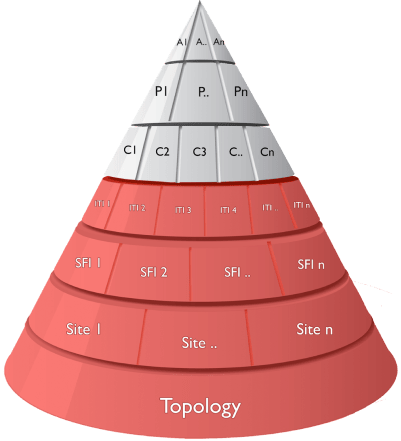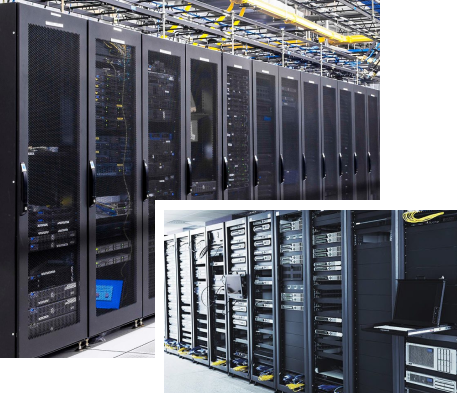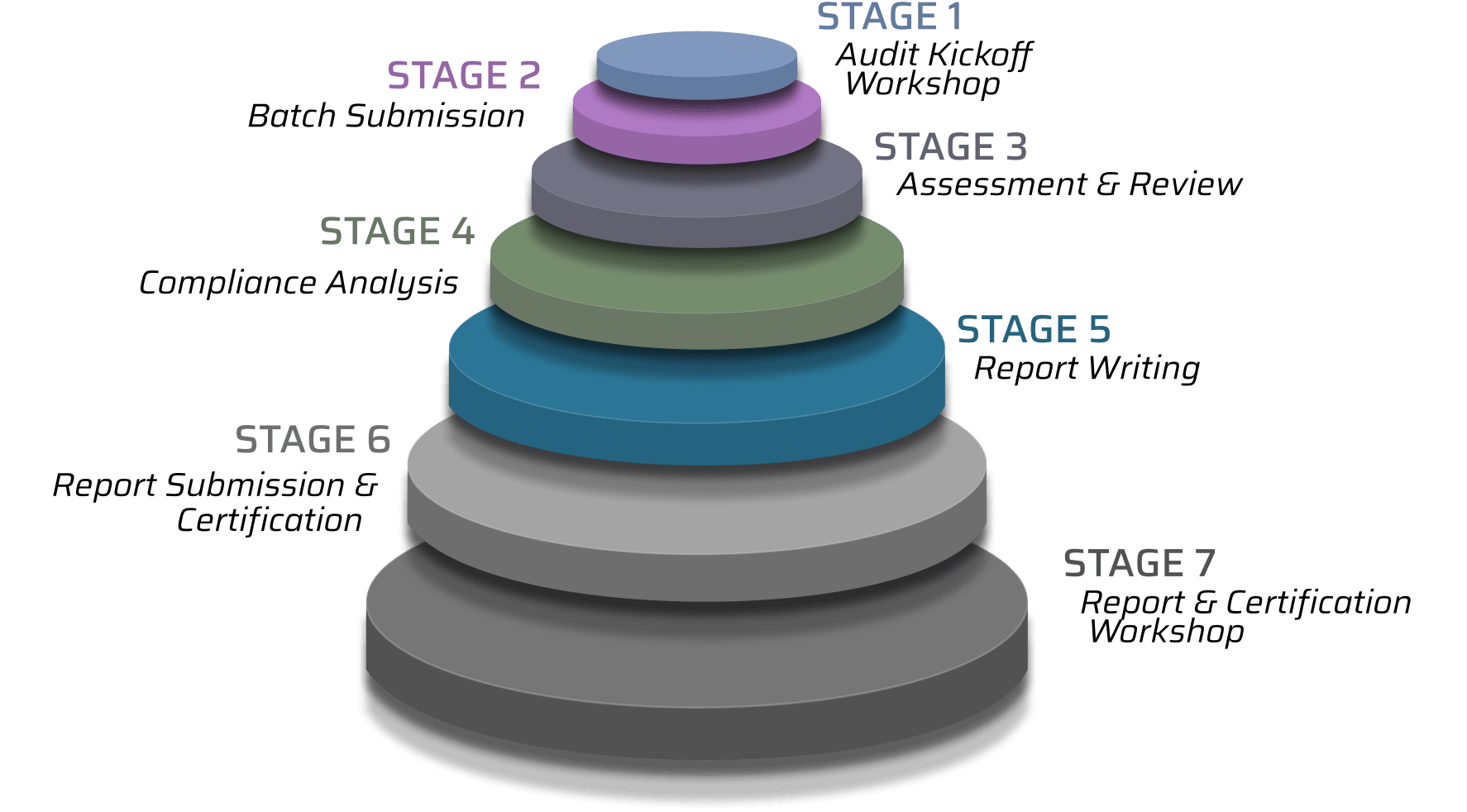
Data Center Certification
The data center is the infrastructure that supports the Application Ecosystem. It is the technology platform that ultimately delivers applications for organizations. Data centers house and protect the “data”, applications, and the computing resources necessary for the delivery of applications. IDCA’s data center audit ensures that the data center will be as safe, secure, efficient, reliable, capable, and as effective as the organization needs it to be.
Data Center Audit
4 Stack Layer Audit
Data Center Certification
The data center is the infrastructure supporting the Application Ecosystem. It is the technology platform that ultimately delivers applications for organizations. Data centers house and protect the “data”, applications, and the computing resources necessary for the delivery of applications. IDCA’s data center audit ensures that the data center will be as safe, secure, efficient, reliable, capable, effective as the organization needs it to be.

Data Center Stack Layer Components
Data Center Layer Components
Information Technology Infrastructure (ITI), Site Facility Infrastructure (SFI), Site, and Topology are the four stack layers of the application ecosystem that will be part of the IDCA’s physical data center audit process.
IT Infrastructure








IDCA data center audits can be conducted at three (3) distinct phases of the data center design, build, and operation lifecycle
Phase 1: Data Center Design
Design Phase
Phase 2: Data Center Build
Build Phase
Phase 3: Data Center Operations
Operations Phase

The Ultimate Data Center Certification
Data Center Certification
IDCA data center audits are based on modern principles as defined by IDCA are vital to the survival of the organization and safeguarding the end-users. Ultimately, the outcome of a data center design, build, and operation and the output of the data center in terms of fulfilling its function must comply with IDCA requirements. It is a known fact that some mishaps do occur at all three phases of design, construction, and operation more frequently than they can be tolerated by the ever-growing demands of sustainability. At times due to lack of knowledge, immense cost pressures, mere negligence, or poor workmanship, parties overlook important aspects of the data center. The ultimate price tag for this negligence is burdened by the end-user! The consequences prove to be devastating to all. This lag is primarily caused by the lack of knowledge regarding the purpose of data centers and their alignment to the business or industry criteria, followed by a lack of comprehension on details of data center requirements, the implications of each requirement, and prevailing interpretations of potential vague aspects or overruling compliance parameters. With the Infinity Paradigm® standards framework, data centers can finally be assessed on a basis that makes sense to the end-users and against the roles, data centers are supposed to fulfill within the application ecosystem and hence undergo a meaningful and effective audit and certification.
Checking Data Center
Availability
Required redundancy and reliability must be met. This practically means eliminating single-points-of-failure (SPF), both within the data center and supporting infrastructure as well as the external services and utility supplies. Redundancy is directly linked to availability and resilience and the data center’s operational maintainability.
Checking Data Center
Systems
Ultimately, based on findings, the auditor will advise if the data center does not only meet the “minimums” (availability, capacity, security, etc.) but also achieves the “optimums”, which can be achieved via the latest and most applicable technologies that are technically, and commercially to the advantage of stakeholders of the data center.
Checking Data Center
Operations
The stakeholders must ensure that the operations ecosystem, inclusive of personnel, policies, and procedures, are fit to operate high-availability mission-critical data center sites and facilities by being implementing effective operations management and maintenance disciplines, as well as documentation, safety, and security procedures.
Tools
IDCA audits involve actual tests and measurements...
Per IDCA’s guidelines, all experts during audit and assessment engagements must include a series of effective measurements and tests to achieve concrete results and render useful reports to the data center operators and end-users. Such tools are used as seen fit by the DCCA, depending on the site conditions and the auditor’s expert judgment while conducting the audit. These tools may include but not be limited to Voltage Multimeter & Trender, Thermal Scanner, EMF Meter, Power Quality Meter, Ground Earth Tester, Lux Meter, Humidity, Velocity, and Temperature Meter, Insulation Multimeter, Batter Tester, Network Meter, and RMS Clamp Meter.


Audit Reports
Comprehensive, detailed, informative, and essential…
Due to its universally effective approach, IDCA audit reports are highly regarded for their comprehensiveness, details, and effectiveness for the organization under assessment. The audit reports typically become part of the organization’s educational process to educate and inform the application, IT, data center, and cloud operations, maintenance, design, and implementation staff to understand the mistakes, flaws, and shortfalls and ensure such will not repeat themselves in the future. In addition, the report becomes a reference point for upcoming projects and a benchmark of compliance matrix for minimizing risks and non-compliances in the future. The organization undergoing IDCA audit can expect to receive grade certification and classification per every high-level component of its infrastructure, i.e. G1® SFI, G2® Site, and G3® ITI.
The Auditor
Data Center Certified Auditor (DCCA)®
Official IDCA Data Center Certified Auditors (DCCAs)® play a critical role in the modern age assessment and validation of computing platforms. A DCCA® has traveled a long and extensive journey, fulfilling requirement after requirement to reach the stage of being able to audit and assess mission-critical data centers. All DCCA®️ certified auditors, have first become Data Center Authority (DCA)®️ certified, which means they are industry veterans, with many years of in-depth expertise, completed all IDCA education and certification ladder; have contributed significantly to the data center industry and community; and on top of all the above, have completed the rigid DCCA® program.

Ready to Start the Conversation?
IDCA global team of experts & licensed providers are ready to help.
Audit & Certification Department
Become a contributing member at IDCA
Share your ideas to the greater community.